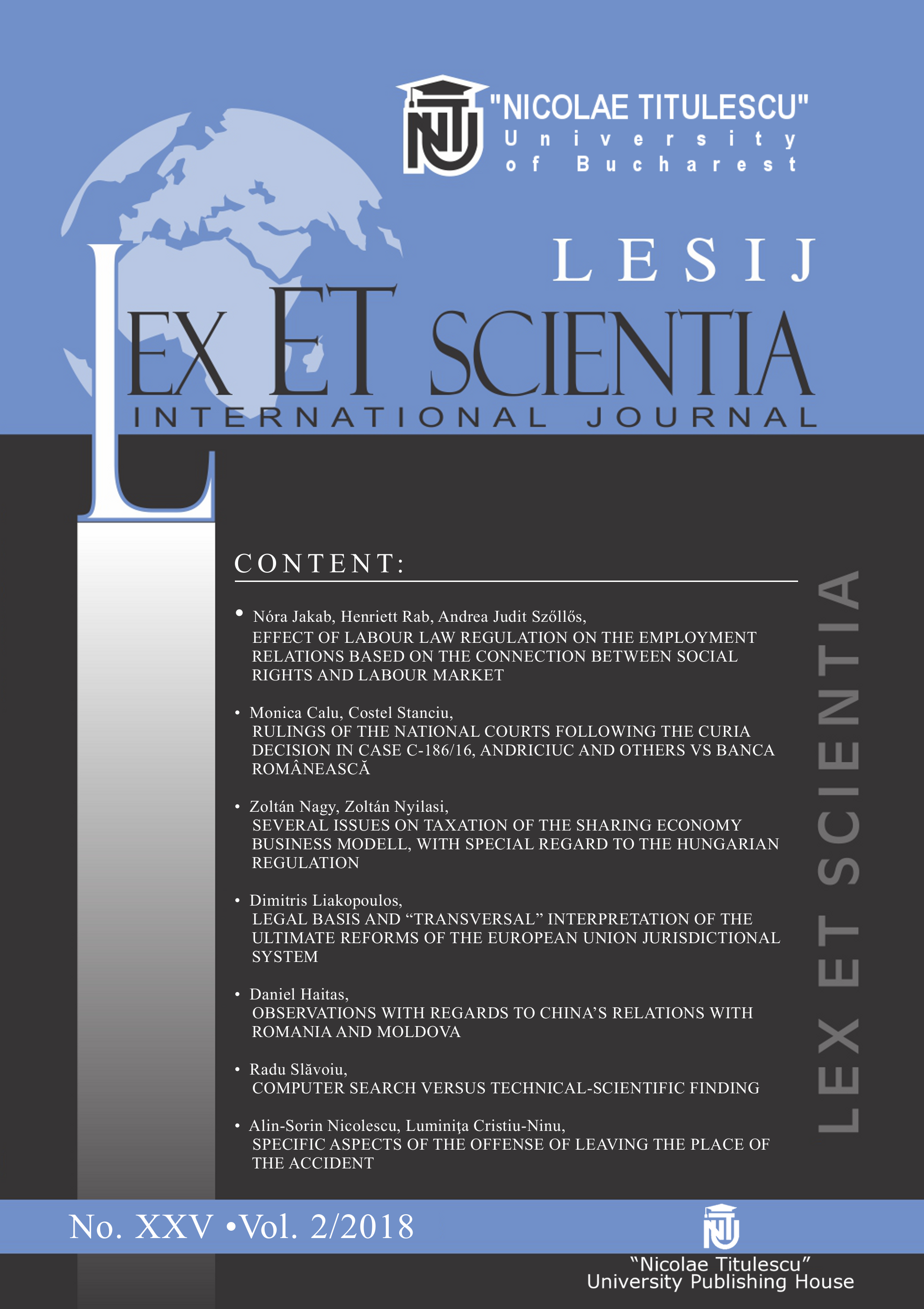THE POSIBILITY OF THE DEBTOR TO REQUEST PUBLIC JUDICIAL ASSISTANCE IN THE FORM OF BAIL EXEMPTION OR REDUCTION DURING A PROVISIONAL SUSPENSION OF THE FORCED EXECUTION CASE
THE POSIBILITY OF THE DEBTOR TO REQUEST PUBLIC JUDICIAL ASSISTANCE IN THE FORM OF BAIL EXEMPTION OR REDUCTION DURING A PROVISIONAL SUSPENSION OF THE FORCED EXECUTION CASE
Author(s): Bogdan Sebastian GavrilăSubject(s): Law, Constitution, Jurisprudence, Civil Law
Published by: Universitatea Nicolae Titulescu
Keywords: public judicial assistance; bail exemption; provisional suspension; forced execution; Court’s role;
Summary/Abstract: The situation is becoming more and more common nowadays. A debtor, lacking in sufficient fonds, is forced to request public judicial assistance from the Court so that he may be exempted from the obligation of paying bail during a provisional suspension of the forced execution case. The article shall focus on the applicability of Article 6 of the E.C.H.R., on the national provisions and on whether or not they may allow such a request to be analysed by the Court and not be rendered inadmissible. Some practitioners have viewed this possibility as inadmissible in accordance to our national legislation. In their view, no legal text allows the debtor to request this type of aid and no legal means are offered to regulate this type of legal problem. Others have granted public judicial assistance after careful consideration of the economic situation of the debtor, in regard to the fact that his right to a fair trial extends even to this particular situation. By not granting him the opportunity to present his arguments at this stage of the trial due to a lack of funds, a sort of discrimination may be generated in favour of the debtors who can financially afford to present their case as opposed to those who cannot. The article shall thus carefully ponder the interests and obligations of the parties involved in the trial so as to establish some useful conclusions or good practices regarding the issue at hand.
Journal: LESIJ - Lex ET Scientia International Journal
- Issue Year: XXV/2018
- Issue No: 2
- Page Range: 22-30
- Page Count: 9
- Language: English

